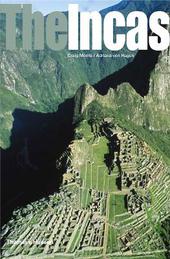
|
The Incas: Lords of the Four Quarters
Paperback / softback
Main Details
| Title |
The Incas: Lords of the Four Quarters
|
| Authors and Contributors |
By (author) Craig Morris
|
|
By (author) Adriana von Hagen
|
| Series | Ancient Peoples and Places |
|---|
| Physical Properties |
| Format:Paperback / softback |
|
| ISBN/Barcode |
9780500289440
|
| Classifications | Dewey:985.019 |
|---|
| Audience | |
|---|
| Illustrations |
189 illustrations
|
|
Publishing Details |
| Publisher |
Thames & Hudson Ltd
|
| Imprint |
Thames & Hudson Ltd
|
| Publication Date |
6 July 2017 |
| Publication Country |
United Kingdom
|
Description
The Incas built one of the largest empires of the ancient world. The sheer scale makes their achievement truly remarkable. At its zenith it extended northwards from the Inca capital Cusco along the Andes to embrace parts of modern Peru and Ecuador, and southwards into Bolivia, Chile and Argentina. Uniquely, the authors look in detail at Cusco and at the four parts of the empire, following the vast road system to explore not just famous sites such as Machu Picchu, but all the major regional settlements. This vivid portrait shows how the Incas ruled some peoples directly but allowed others to maintain their traditional leaders with little interference. The concluding chapter is devoted to the end of the empire: the arrival of the Spaniards, the assassination of the Inca ruler Atawallpa, and the final years of the rebellious, neo-Inca state in the tropical forest of Vilcabamba.
Author Biography
Adriana von Hagen is co-director of the Leymebamba Museum in Chachapoyas, Peru. The late Craig Morris was Curator of Anthropology and Senior Vice President of the American Museum of Natural History, NewYork.
Reviews'A lively, deeply informed and highly readable account of the last great empire of pre-Columbian South America' - Gary Urton, Harvard University 'I know of no other book in English that provides such a good region by region description of the Inca empire ... Both a useful review of the main Inca sites and a new perspective on the structure of the empire' - Bill Sillar, Institute of Archaeology, University College London
|